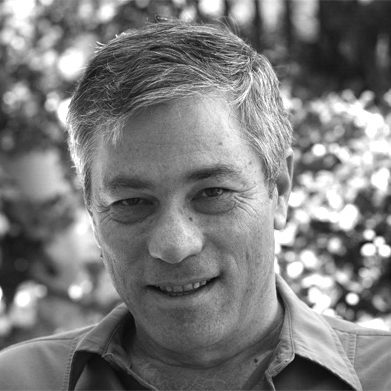Precisely when the prospect of peace between Israelis and Palestinians seemed at its most remote, I received a call from my friend, Walid Salem.
Salem is a Palestinian peace activist who for years has been working tirelessly for a two-state solution.
He said I should come to the Ambassador Hotel in Jerusalem, where one of the organizations he has been involved with, Bringing Peace Together, was holding a roundtable discussion about the situation.
Recently, I have become a bit tired of all these discussions. For years we used to sit there, Israelis and Palestinians, and exhaust each other with accusations, historical analyses and far-fetched plans, which all came to nothing. However, Salem and I became personal friends, and therefore, when he called, I couldn’t refuse.
At the Ambassador Hotel in East Jerusalem, after hugs and kisses, we sat down. Next to me was Salwa Hdeib-Qannam, an impressive woman who is the deputy minister of women’s affairs in the Palestinian National Authority. She apologized for being late: “The checkpoint today was slower than usual,” she said as a matter-of-fact. When we exchanged business cards, she scribbled on hers a different e-mail address.
“The Hamas stole our Internet system,” she explained.
I looked at the Palestinians around me, pondering what they had to go through in their lives, both nationally and personally. There was Ali Abu Shalla, a businessman from Gaza, who said Israel should lift the siege off Gaza.
“If I want to buy chocolate for my grandchild, I can’t,” he said, touching the hearts of us all.
I didn’t even think about reminding him of the Qassam rockets from Gaza harassing the lives of the people of Sderot. He wasn’t launching them; as a matter of fact, his life was threatened by Hamas, who had been ruling Gaza with an iron fist.
The comic relief was provided by a young representative of the Israeli Ale Yarok (Green Leaf) party, which — among other things — demands that the cannabis plant should be removed from the dangerous drug act and become completely legal. Reading solemnly from his papers, this guy described his peace plan, which, if I heard right, included “the import of water from Turkey, so that Israel can safely retreat from the Golan Heights.” Some of us, including the Arabs, couldn’t help but giggle, to which he responded with a heartbroken look that made me approach him during the coffee break and apologize for our insensitivity.
Back in my office, I met with Dr. Yehuda Stolov, the founder and executive director of the Interfaith Encounter Association. Stolov, a religious Jew, described to me how from a handful of enthusiasts the association grew to encompass more than 3,000 people, meeting in 27 groups of Arabs and Jews, Israelis and Palestinians.
I sat there listening to this good man, who was passionate about what he was doing. I liked him right away. He was a bit of fresh air, a contrast to the dangerous, unholy marriage between religion and politics, which had become so popular in our area. He told me about Muslims and Jews together breaking the fasts of Ramadan and Gedaliah, sacred to both believers, respectively; about retreats where Israelis and Palestinians discussed themes like “forgiveness” and “reward.”
I almost couldn’t believe that all this had been happening, while the common wisdom was that all Jews and Arabs could do was to grab at each other’s throat. He smiled and told me about joint Jewish-Muslim teams knocking on doors of Jewish homes in Jerusalem, collecting products for needy Muslims in the other part of the city. This was just before Passover, when religious Jews have to get rid of food products that according to the Jewish religious law cannot be used during the holy days.
“We were filled with hope for reconciliation and understanding,” he said. “When we saw that contrary to what we expected, most people agreed to donate for people of the neighboring nation, despite the ongoing state of war.”
Usually, I’m not such a religious person myself, but this week’s encounters filled me with a great desire, a prayer, if you wish, that God would once again appear in a storm and wipe out the politicians from the face of the earth.
Then we will be left with individuals like Salem and Stolov, who believe that if people would just sit down and talk to each other, the world would be a better place.
Uri Dromi is a columnist based in Jerusalem.






















 More news and opinions than at a Shabbat dinner, right in your inbox.
More news and opinions than at a Shabbat dinner, right in your inbox.